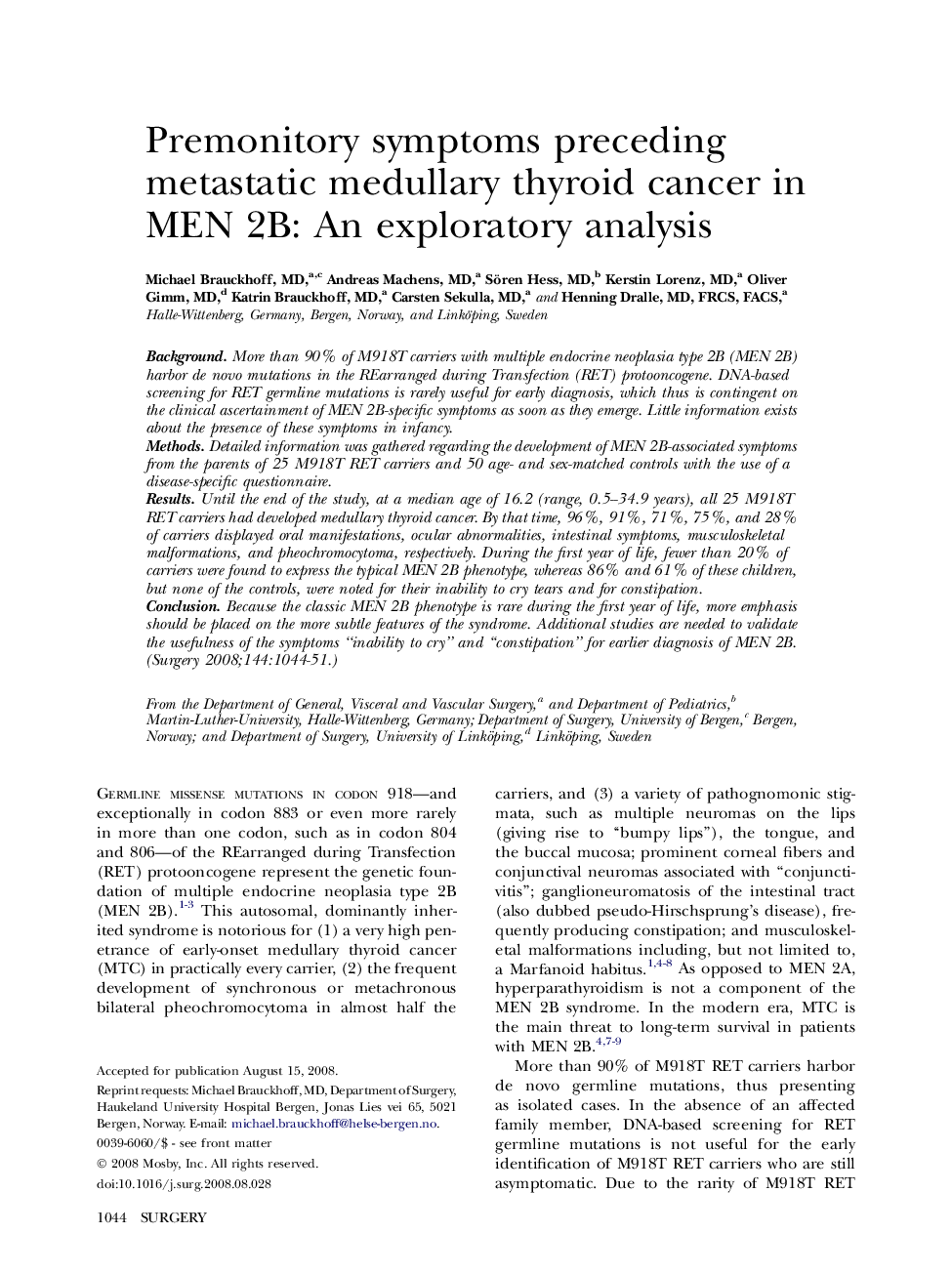| Article ID | Journal | Published Year | Pages | File Type |
|---|---|---|---|---|
| 4309336 | Surgery | 2008 | 8 Pages |
BackgroundMore than 90% of M918T carriers with multiple endocrine neoplasia type 2B (MEN 2B) harbor de novo mutations in the REarranged during Transfection (RET) protooncogene. DNA-based screening for RET germline mutations is rarely useful for early diagnosis, which thus is contingent on the clinical ascertainment of MEN 2B-specific symptoms as soon as they emerge. Little information exists about the presence of these symptoms in infancy.MethodsDetailed information was gathered regarding the development of MEN 2B-associated symptoms from the parents of 25 M918T RET carriers and 50 age- and sex-matched controls with the use of a disease-specific questionnaire.ResultsUntil the end of the study, at a median age of 16.2 (range, 0.5–34.9 years), all 25 M918T RET carriers had developed medullary thyroid cancer. By that time, 96%, 91%, 71%, 75%, and 28% of carriers displayed oral manifestations, ocular abnormalities, intestinal symptoms, musculoskeletal malformations, and pheochromocytoma, respectively. During the first year of life, fewer than 20% of carriers were found to express the typical MEN 2B phenotype, whereas 86% and 61% of these children, but none of the controls, were noted for their inability to cry tears and for constipation.ConclusionBecause the classic MEN 2B phenotype is rare during the first year of life, more emphasis should be placed on the more subtle features of the syndrome. Additional studies are needed to validate the usefulness of the symptoms “inability to cry” and “constipation” for earlier diagnosis of MEN 2B.
